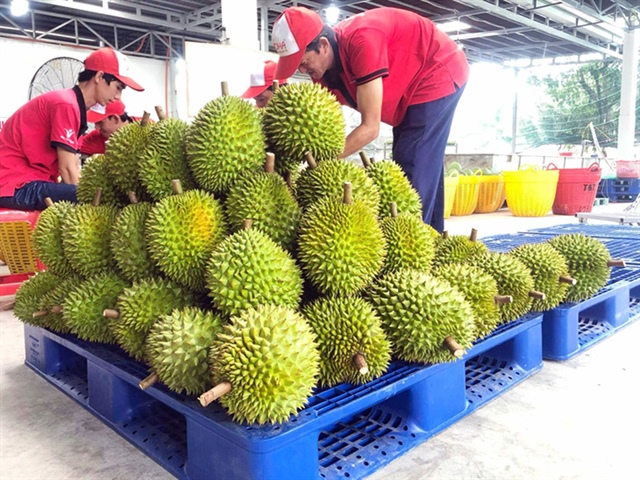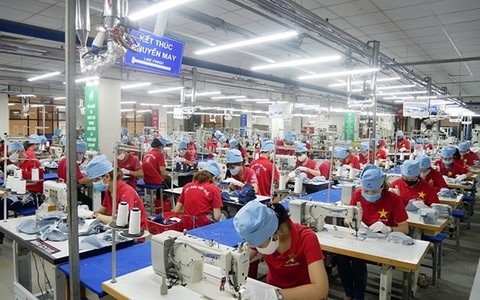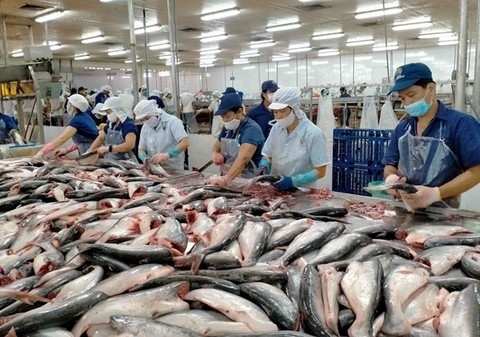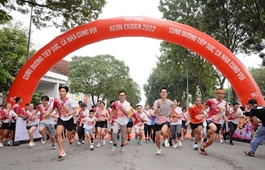Planting area codes key for Viet Nam's farm produce exports
Planting area codes key for Viet Nam's farm produce exports
The Ministry of Agriculture and Rural Development (MARD) is promoting the granting and management of planting area codes to meet traceability regulations for import and export goods on the world market.

Traceability is a must-have requirement for every product, especially in export markets. One of the key factors in traceability is the planting area of materials to be assigned a code. Each planting area with a code will create more confidence for consumers.
Hoang Trung, director of MARD's Plant Protection Department, said the granting of codes and management of coded planting areas and packing facilities are the department's top priorities in developing agricultural production and farm produce exports.
Viet Nam has about 4,000 planting areas and 2,000 packing facilities for farm produce in 50 provinces and cities that have been coded. The agricultural products include fruits, rice, coffee, pepper, cashew and wood.
According to the ministry, in the first eight months of 2022, the export value of agriculture, forestry and fishery reached US$36.3 billion, up 13.1 per cent over the same period in 2021.
With this growth in the export value of agricultural products, the agricultural sector must increase the number of new planting regions being granted codes and maintain the management quality of the coded planting areas.
The ministry has assigned about 90 per cent of the coded planting regions to the localities managing their quality of them since 2021.
Localities are responsible for granting the code to the new planting areas and reviewing the areas with codes. Then it would report this issue to the Plant Protection Department.
The department will review all dossiers requiring granting codes for planting areas before sending the procedures to countries importing local agricultural products to confirm the codes.
Meanwhile, the localities manage and maintain the coded planting areas and packing facilities.
The product quality of the planting areas with codes is an important issue because the import markets of Viet Nam's agricultural products always inform the Plant Protection Department about those products in case the products from those coded planting areas are not quality as required.
Therefore, it is necessary to manage the quality of the agricultural production in the coded planting areas, creating the quality of the value chain from the first step in production.
An Giang Province supplies a large volume of raw materials for export, such as rice, fruits and aquatic products. Therefore, developing coded planting areas of the materials and coded packaging facilities is necessary to improve the value of agricultural products, exploiting the advantages of the local agricultural products.
An Giang has planned to develop and grant codes for 1,800 planting areas for agricultural products and 30 packaging facilities in the province by 2025.
Truong Kien Tho, deputy director of An Giang Department of Agriculture and Rural Development, said the province had granted codes for 252 planting areas and 21 packaging facilities, including 146 planting areas of fruit trees, one area of vegetables (chilli) and 105 areas of glutinous rice.
In addition, An Giang is promoting coordination with enterprises exporting farm produce in developing coded areas planting rice and glutinous rice, and fruits exported to high-end markets such as Australia, the US, EU, Japan, China, New Zealand, and South Korea.
It is important to manage the quality of the coded planting areas and also grant the codes for new planting areas, Tho said.
Meanwhile, Dong Thap Province targets to grant codes for all planting areas and packaging facilities by 2025, according to Le Quoc Dien, deputy director of Dong Thap Province's Department of Agriculture and Rural Development.
All agricultural product processing and trading facilities in the province must have a traceability system to meet the requirements of export markets.
Now, Dong Thap cooperates with businesses, such as Loc Troi Group, Golden Gate JSC and Westemfarm Co, Ltd, to purchase products from codded planting areas for exporting to the US, Japan, the EU, Australia and China.
This province has also enhanced training to improve knowledge of safe production, granting and managing coded planting areas and packaging facilities, Dien said.
One of the province's key export fruits is mango, with a planting area of 14,000ha, accounting for 33.7 per cent of the province's total fruit tree area. The province ranks second in the Mekong Delta region regarding mango output. Thanks to being granted codes for the mango planting areas, the province has gained an advantage in exporting this kind of fruit.










